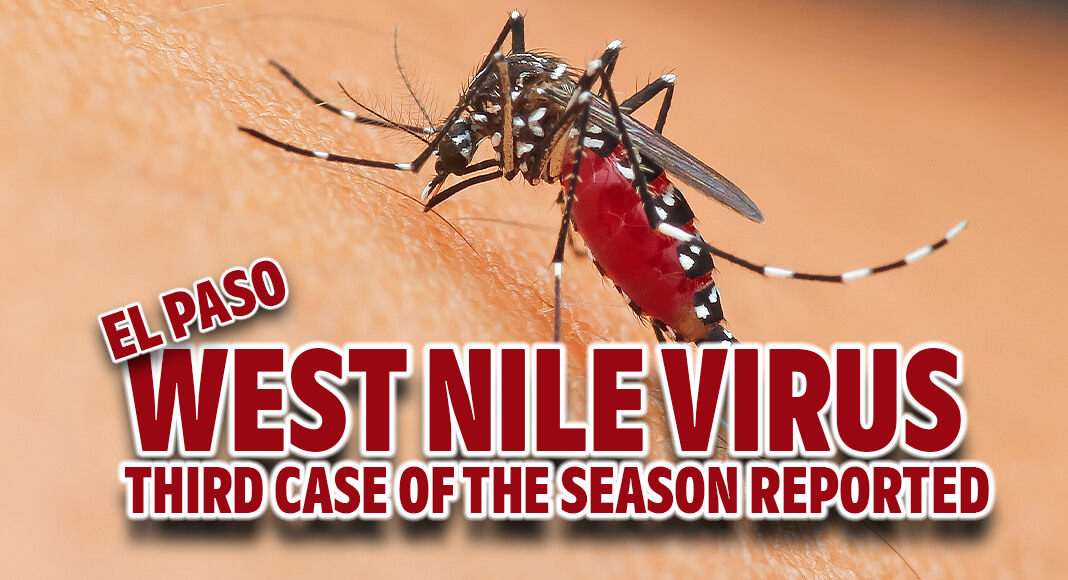
Mega Doctor News
EL PASO, Texas – The City of El Paso Department of Public Health (DPH) has confirmed its third case of the Neuroinvasive West Nile Virus (WNV) disease in the community.
A female in her 20s is confirmed to have contracted the WNV and developed Neuroinvasive disease. Patient had no underlying conditions and has since been discharged from the hospital.
“The Severe Central Nervous System West Nile Virus disease is extremely dangerous and can lead to potential complications, disability or even death,” said City-County Health Authority Dr. Hector Ocaranza. “With the rain during monsoon season, the public should continue to be careful and decrease the risk of getting infected with WNV by practicing the four Ds to prevent mosquito bites.”
Symptoms of West Nile infection include fever, headache, tiredness, body aches, nausea, vomiting and swollen lymph glands. Eight out of 10 people infected with the WNV will not develop symptoms. However, 1 in 5 people who are infected develop West Nile fever, an illness that includes a fever and other symptoms such as body aches, joint pain, headache, or a rash. About 1 out of 150 infected people develop severe illness affecting the central nervous system and about 1 out of 10 cases of severe illness are fatal.
El Pasoans can help ‘fight the bite’ by following these 4 easy prevention steps:
· DEET: Use insect repellents that contain DEET when outdoors.
· DRESS: Wear long sleeves, long pants, and socks when outdoors.
· DUSK & DAWN: Although mosquitoes associated with WNV can be active throughout the day, residents should take extra care during peak mosquito biting hours (from dusk to dawn) or consider avoiding outdoor activities during these times.
· DRAIN: Drain standing water from flowerpots, gutters, buckets, pool covers, pet water dishes, and birdbaths. After rains or lawn watering, residents should “tip and toss” any standing water they find outside.
Residents can report standing water and mosquito breeding by calling (915) 212-6000.
For more information and tips visit EPHealth.com under the Emergency Preparedness Be Climate Ready tab.








